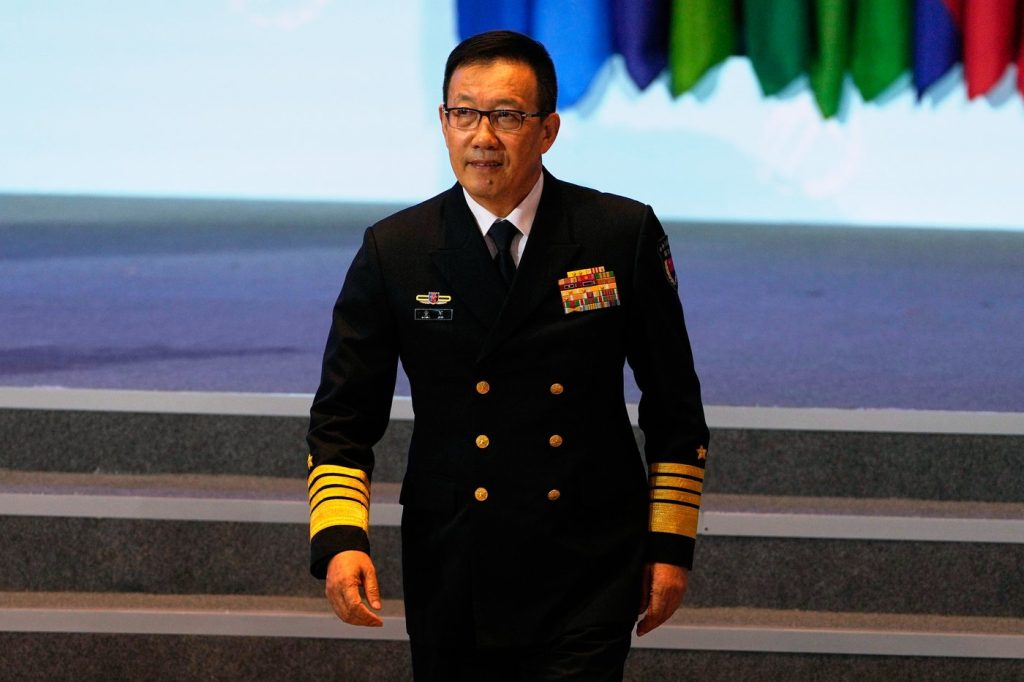TAIPEI, Taiwan (AP) – On Thursday, China's Defense Minister Dong Jun reiterated his country's stance on Taiwan, emphasizing that the takeover of the self-ruled island is a priority for Beijing. Speaking at the Beijing Xiangshan Forum, an annual security conference aimed at reinforcing military cooperation and projecting regional leadership, Dong categorized the “restoration” of Taiwan as “an integral part of the post-war international order.”
Beijing regards Taiwan, governed separately since 1949 and home to a population of 23 million, as a breakaway province. The Chinese government has maintained its position that it will not forsake the possibility of using force to exert control over Taiwan, intensifying military pressure by deploying warships and aircraft near the island almost daily. The Taiwan President, Lai Ching-te, and his Democratic Progressive Party firmly reject this narrative, asserting that Taiwan is a sovereign entity whose future decisions should be made by its people.
During his address, Dong declared that China would “never allow any separatist attempts for Taiwan independence to succeed,” asserting readiness to counter any “external military interference.” He emphasized that the Chinese military is devoted to working with all parties to uphold global peace, stability, and progress.
While he did not explicitly mention the United States, Dong criticized actions he described as “external military interference” and efforts to create spheres of influence, suggesting that such behaviors threaten to unleash chaos and conflict within the international community. This rhetoric comes amid growing tensions between China and the U.S. regarding military presence and influence in the region.
The Xiangshan Forum follows recent military activities by China, including a massive parade earlier this month that celebrated the 80th anniversary of the end of World War II. During this event, China's military showcased its advanced weaponry, including indigenous hypersonic missiles and modern tanks, underscoring the country’s burgeoning military capabilities.
Dong also highlighted the importance of maintaining a “UN-centered international system” as essential for global stability. He stated, “We must defend the post-war order,” clarifying that China does not seek to disrupt the existing order but aims to reinforce its foundations and principles.
Through these statements, Dong seeks to position China as a key player in ensuring stability and peace while confronting what it perceives as challenges posed by external military pressures regarding Taiwan and other regional issues. The discussions during the Xiangshan Forum reflect broader geopolitical tensions in the Asia-Pacific region and set the stage for ongoing debates about defense and security strategies among participating nations.











